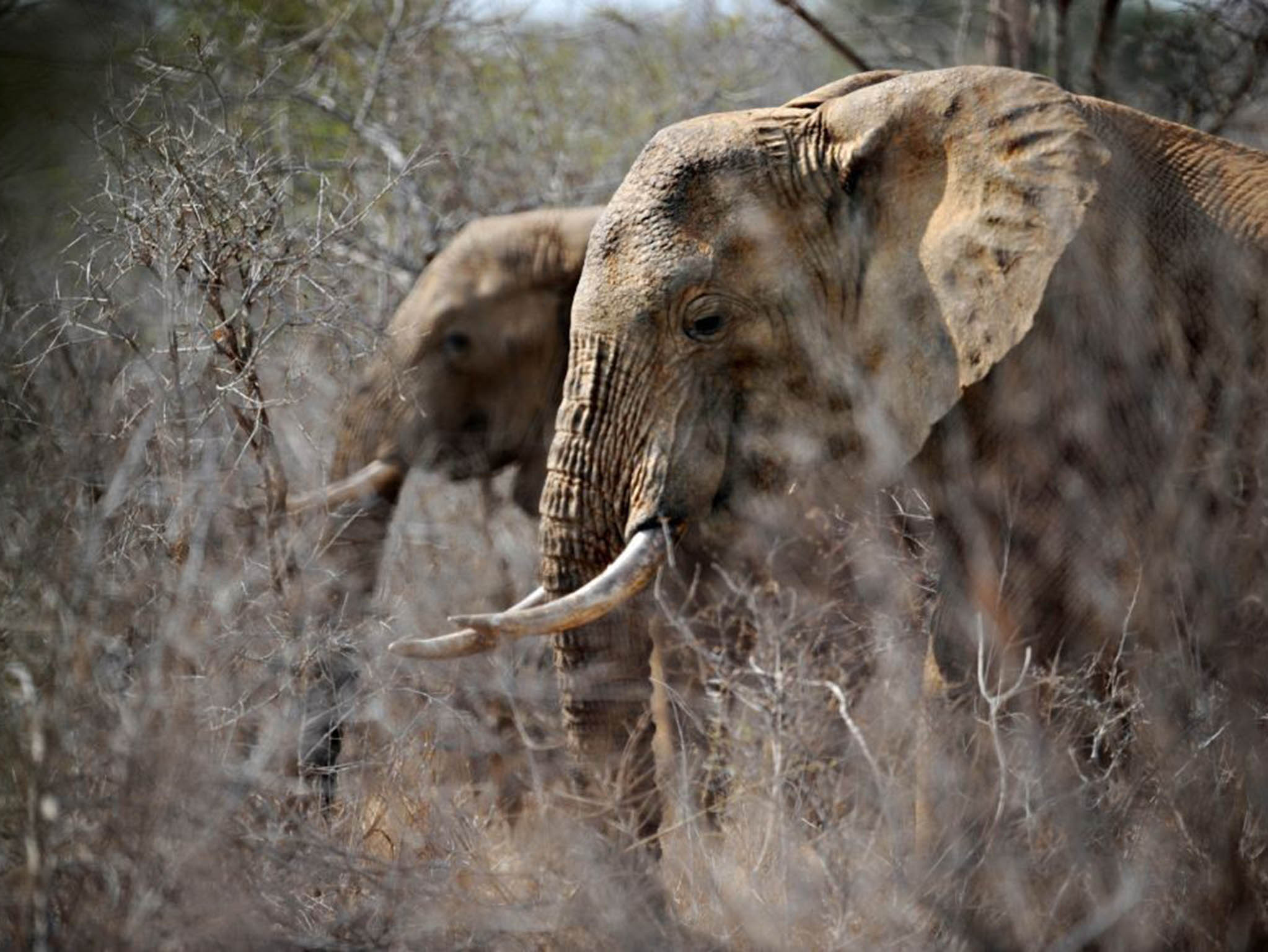The biggest destruction of ivory in Africa's history is about to take place, not a moment too soon
Burning such a huge amount of ivory should remind us that it’s a small price to pay for the future, not just of this much loved and important species, but for millions of people across Africa’s elephant range states whose lives are inextricably linked with those of elephants

Your support helps us to tell the story
From reproductive rights to climate change to Big Tech, The Independent is on the ground when the story is developing. Whether it's investigating the financials of Elon Musk's pro-Trump PAC or producing our latest documentary, 'The A Word', which shines a light on the American women fighting for reproductive rights, we know how important it is to parse out the facts from the messaging.
At such a critical moment in US history, we need reporters on the ground. Your donation allows us to keep sending journalists to speak to both sides of the story.
The Independent is trusted by Americans across the entire political spectrum. And unlike many other quality news outlets, we choose not to lock Americans out of our reporting and analysis with paywalls. We believe quality journalism should be available to everyone, paid for by those who can afford it.
Your support makes all the difference.This April, the biggest destruction of ivory in Africa’s history will take place in Nairobi under the glare of the world’s media. Kenya is a country synonymous with wide open safari-country inhabited by predators and prey many of us have come no closer to observing than through the pages of National Geographic or a David Attenborough documentary.
Yet, despite our dislocation from Kenya’s savannahs, Congo’s forests, and South Africa’s Kruger National Park, most of us reading these words have at one time or another felt an innate sadness or frustration at the plight of elephants, and other magnificent species, whose existence hangs precariously in the balance. On the one hand there is a groundswell of support for elephant conservation - almost everywhere. On the other hand, incredibly in the 21st century, we still find people thousands of miles away from Africa who want to buy ivory because they think it reflects material success.
The Giant's Club Summit is a unique and incredibly important event. At its core, it reflects that African countries are not willing to sit passively by while their extraordinary natural heritage is illegally pillaged and plundered to adorn mantlepieces, shrines and necks worlds’ away. On the contrary, Africa is leading the international community with its own initiative to combat the uninvited and insidious problem of the ivory trade.
The Elephant Protection Initiative (EPI) is uniting African nations in opposition to the ivory trade. Founded in 2014 by Gabon, Ethiopia, Chad, Tanzania and Botswana as a crisis response to plummeting elephant populations across the continent, the EPI seeks to maintain the international ban on ivory, to close domestic ivory markets and to put ivory stockpiles beyond economic use. Critically, it also sets out a framework for in-country elephant protection and management through the African Elephant Action Plan. By January this year, 11 countries had joined the EPI including Uganda, Malawi, Liberia, The Gambia, The Republic of Congo and, of course, Kenya last July, when President Kenyatta also joined the Giants Club having committed to destroy Kenya’s entire stockpile.
Burning such a huge amount of ivory should remind us that it’s a small price to pay for the future, not just of this much loved and important species, but for millions of people across Africa’s elephant range states whose lives are inextricably linked with those of elephants. These relationships are complex for some, and for others they provide livelihoods upon which entire communities depend. Whether those relationships are challenging or smooth, one thing is certain, the ivory that decorates a coffee table - whether in the US, China, Vietnam or the UK - does not provide a livelihood, an education or basic health care for generations of communities who live with and among elephants. Every elephant killed for its ivory is a net loss for Africans.
The data makes the scale of the crisis clear. Across Africa, it is estimated that 30 - 35,000 elephants are being slaughtered annually. According to the most recent census carried out by the Wildlife Conservation Society, 65 percent of elephants from the Central African region were lost between 2002 and 2012. That’s an eradication rate of 9 percent a year. Time is against us.
This September at the Conference of the Parties to CITES (CoP17), which will take place in Johannesburg, crucial decisions concerning the future of the world’s remaining elephant populations will be made. With 181 parties, CITES is viewed by many as one of the world’s most important multilateral environmental agreements. Resolutions are binding on the parties and, importantly, are enforceable. Non-compliance can have serious repercussions for the countries involved.
As countries from across the world – the UK included – consider their position on closing domestic ivory markets in advance of the CITES conference, they should look to Kenya's leadership: no one will be able to say they didn't notice.
Elephants have so much to teach us about the importance of community and compassion. As we witness the towering monument to Kenya’s dead elephants set ablaze this April in Nairobi, we must remember that this is a giant step towards ending the slaughter, but that the journey must continue beyond it. It is our shared responsibility.
Join our commenting forum
Join thought-provoking conversations, follow other Independent readers and see their replies
Comments